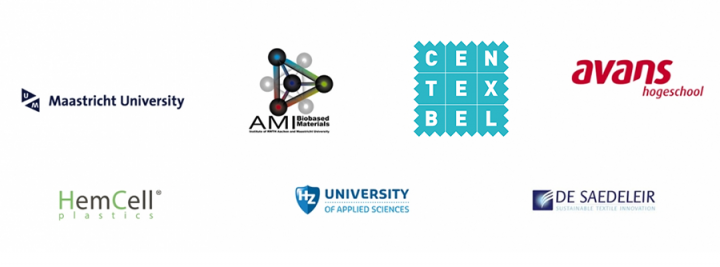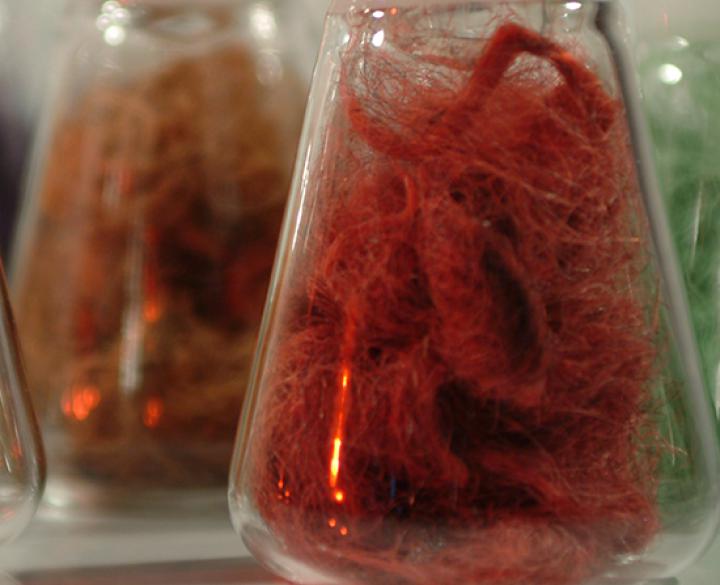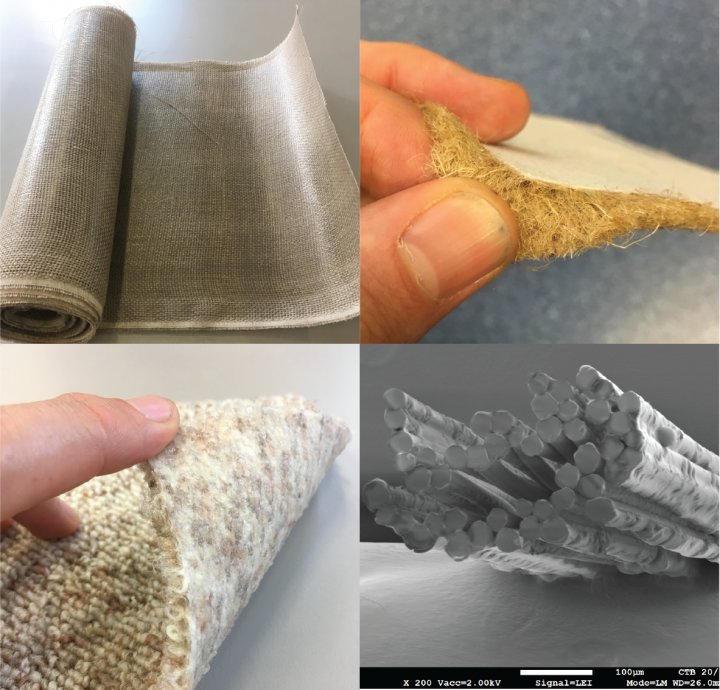The main goal of the BB100 project is the development of a process chain towards fully bio-based man-made fibre materials. This does not only include the mere processing of biopolymers, but also commonly used additive materials like plasticizers, flame retardants, colorants and nucleation agents. Fully bio-based yarns and textile demonstrators will be developed.
Both Flanders and the South of Netherlands traditionally have a large number of companies that are active in the plastics processing industry, particularly in the field of textiles: Both regions hold extensive expertise in the development and production of carpet and clothing. By 2030, the textile sector aims to use between 20% to 50% biobased materials in its products. In order to realize this, it is necessary for the textile industry to obtain high-quality fibers and yarns based on 100% biobased materials.
The project 'Pure nature: 100% biobased' aims to provide sustainable, non-toxic, and biodegradable alternatives based on renewable raw materials. This project is a collaboration between Maastricht University, Avans University of Applied Science, Centexbel, HZ University of Applied Sciences and the companies De Saedeleir Textile Platform and HemCell. The project results in the development of fully biobased plasticizers, flame retardants, dyes, stabilizers, adhesives, and nucleating agents. For example, in textiles, color intensity and stability are the most important quality indicators. However, biobased dyes are commercially available to a limited extent and often do not meet quality criteria such as color authenticity.
This project focuses on developing natural dyes from marine organisms (such as algae) and agricultural crops which (amongst others) contain sorghum and onion peels. The developed additives will be tested in the laboratory in which different combinations are applied via compounding (mixing in molten state), extrusion (spinning into fibers in molten state), coating, finishing and dyeing. After analysis of the developed compounds and textile fibers, an evaluation will be made to identify the most suitable chemical technology to develop fully (100%) biobased textile products in large scale. In addition, these processes are being up-scaled to a pilot scale to allow various companies to develop fully biobased tufted carpet, clothing, bedding and non-woven carpet backing. Lastly, the biobased additives, fibers, and applications are examined for their environmental impact in the various development stages by means of a life cycle analysis (LCA).

Project partners










